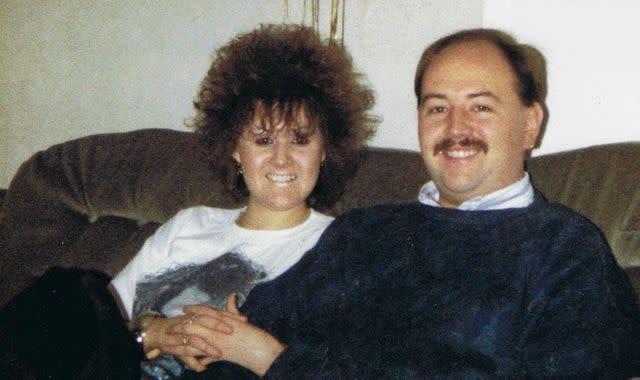Hillsborough victim's sister says only way to stop cover-ups is to send people to jail in wake of blood scandal

The sister of a man who died in the Hillsborough disaster has cast doubt on whether a law aimed at preventing official cover-ups can ever truly work "until they start sending people to prison".
A new report into calls for a "Hillsborough Law", published by parliament's Joint Committee on Human Rights (JCHR), has recommended the government consider introducing a statutory "duty of candour" for all public bodies.
Campaigners want the new legislation to prevent a repeat of the experiences of families of the 97 fans who were killed in the 1989 Hillsborough disaster from happening again.
In June 2021, two police forces agreed to pay damages to more than 600 survivors of the Hillsborough disaster and the family members of victims following a cover-up of the tragedy.
Louise Brookes, whose brother Andrew Mark Brookes was one of the Hillsborough victims, told Sky News that, while she welcomes the principle of a Hillsborough Law to prevent cover-ups in future, she is concerned at how seriously the duty of candour would be taken.
"You will never get people to tell the truth when it's not in their best interests when they are protected by their bosses, when it's the establishment," she said.
"Until they start sending people to prison, nothing is going to change in this country."
Pressure for a new law increased this week after the report of the inquiry into the infected blood scandal found it "could largely have been avoided" and that there was a "pervasive" cover-up to hide the truth.
The JCHR said it heard from witnesses who felt the lessons of Hillsborough "remained unlearnt" and some of the same issues continued to have an impact at other major hearings including the Manchester Arena inquiry.
"People need to understand that these cover-ups traumatise us for life," Ms Brookes said.
She said victims of a series of scandals have experienced it.
Read more:
Liverpool fan running 227 miles in call for Hillsborough Law
100 faces of the infected blood scandal
Ms Brookes continued: "For us, the truth is these lies ruin our lives and have sent some people to their graves.
"Individuals need to find their moral compass."
Last year, in a response to a report on Hillsborough by the former bishop of Liverpool, the Right Reverend James Jones, the government stopped short of introducing legislation, instead proposing a pledge to put the public interest ahead of its reputation.
But JCHR chairwoman Joanna Cherry KC said: "All of us on the human rights committee have huge respect and admiration for the courage and fortitude of the families of those who died at Hillsborough and the survivors. Just this week we have also seen how the victims of the infected blood scandal had to go through a similar struggle.
"It is shameful that their pain was compounded by the delays and obfuscation they faced in their search for the truth, and the decades they had to wait for justice.
"Even so many years later, lessons still have to be learnt to ensure that these failures are not repeated."
Solicitor Elkan Abrahamson, a director of the Hillsborough Law Now campaign, told Sky News that the public was "fed up with officials lying all the time" and that victims were currently suffering a double injustice.
"There is an impetus from the public for this to be enacted.
"When you ask bereaved families what they want to achieve, almost always the answer is 'We don't want this to happen to anyone else'. When they see the government or other public officials covering up what went wrong that almost wounds them psychologically.
"It compounds the trauma they suffered in the first place. It is offensive, not just to the bereaved, but to us as a society."
In response to the JCHR report, the Cabinet Office pointed to remarks by the Paymaster General John Glen in the Commons on the infected bloody inquiry report this week.
He told MPs that on issues like duty of candour "progress is being made in different ways".

 Yahoo News
Yahoo News 
